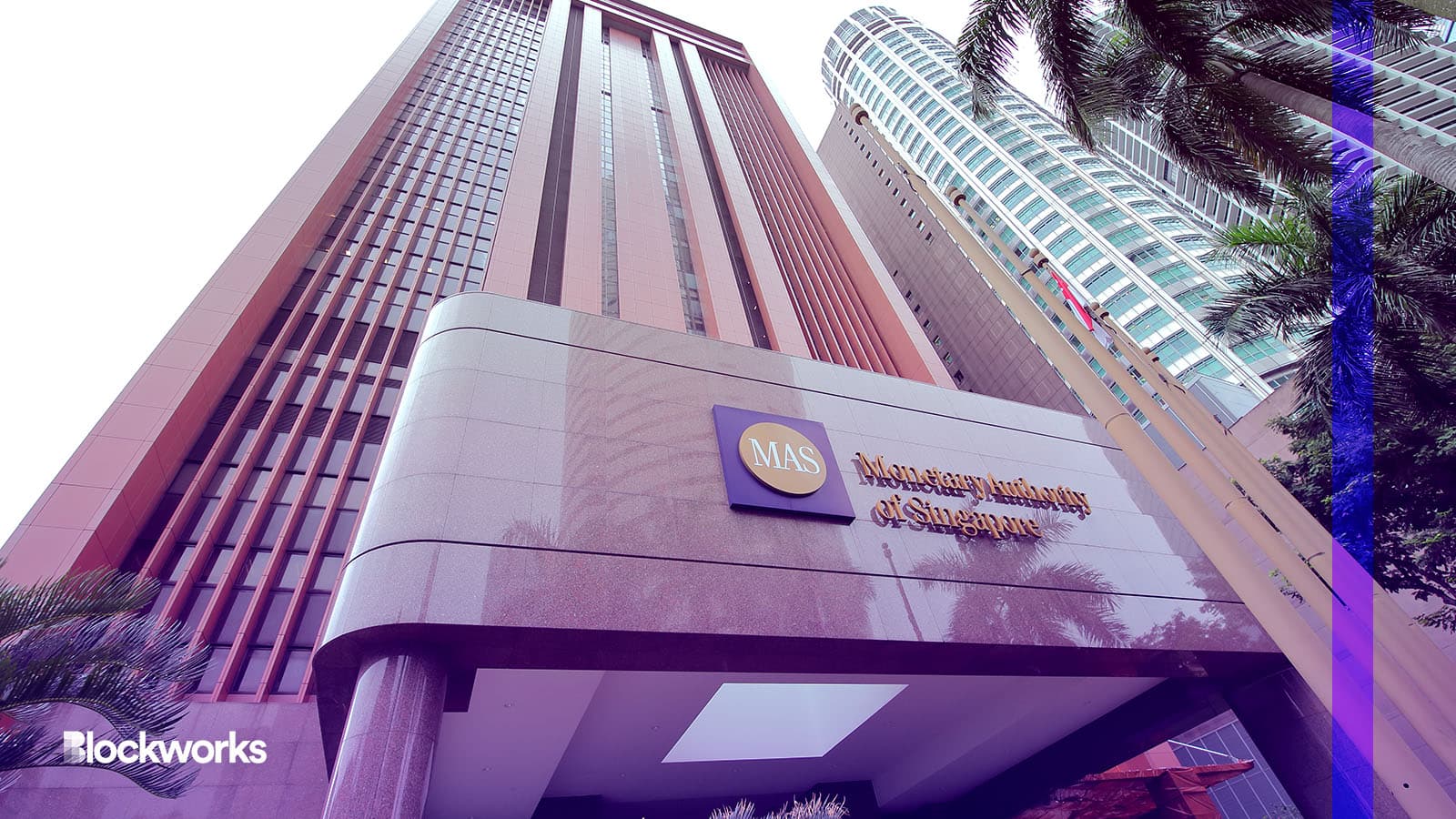Most crypto companies don’t meet Singapore’s license standards
Singapore will roll out measures that will make its cryptocurrency regulations among the strictest worldwide for retail access, MAS communications director Dawn Chew said

TK Kurikawa/Shutterstock, modified by Blockworks
Most crypto organizations seeking a license in Singapore have not succeeded, according to an executive at the city-state’s central bank.
The Monetary Authority of Singapore (MAS), the body overseeing crypto business licensing, only approves applicants with strong anti-money laundering measures in place, Dawn Chew, director of corporate communications, wrote in the Financial Times on Friday.
Chew was responding to Singapore local Thomas See against his claim that the MAS has recklessly allowed crypto companies to use the city’s Fast (Fast and Secure Transfers) interbank payment system, pointing to the industry’s ties to scams and money laundering.
He said the move was unwise as it enables “linking retail bank deposits direct to crypto payments.”
But Chew contested See’s description, arguing that transactions between a customer and a crypto firm via Fast don’t actually connect the customer’s bank deposits to that company.
Only a limited number of companies have successfully acquired a Major Payment Institution (MPI) license for digital payment token services. As per the MAS website, the list of MPI license-holders as of Sept. 1 includes:
- Blockchain.com
- Circle Internet Singapore
- DBS Vickers
- Digital Treasuries Center
- FOMO Pay
- Foris DAX Asia (Crypto.com)
- Hako Technology (Coinhako)
- Independent Reserve
- MetaComp
- Paxos Global
- Revolut
- Sparrow Tech
Chew further mentioned that the MAS has sought feedback on various regulatory actions aimed at reducing the risks that crypto poses to individual consumers. These initiatives will be gradually implemented starting from the end of the year.
“Singapore will have one of the strictest regulatory regimes in the world governing retail access to cryptocurrencies,” Chew added.
Singapore is strategically becoming a worldwide hub for digital currencies, targeting the attraction of international businesses, as much of the crypto industry finds the US regulatory framework wanting.
Get the news in your inbox. Explore Blockworks newsletters:
- The Breakdown: Decoding crypto and the markets. Daily.
- 0xResearch: Alpha in your inbox. Think like an analyst.






